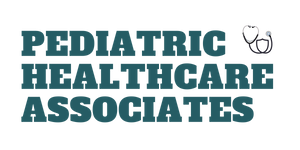The Common Cold: Understanding Symptoms, Prevention, and When to Seek Care
As fall arrives in Altoona, children become more vulnerable to seasonal illnesses, with one of the most widespread being the common cold. This highly contagious viral infection affects millions of children each year, particularly during the fall and winter months when cooler temperatures and increased indoor activities create an environment for viruses to spread more easily. As kids return to school and engage in more group activities, their exposure to germs increases, making them more susceptible to colds. While the common cold is typically mild, it can still cause significant discomfort, especially in younger children whose immune systems are still developing.
Symptoms of the common cold in children can vary but often include a runny or stuffy nose, sneezing, coughing, sore throat, mild fever, fatigue, and occasional headaches. Although colds are usually harmless, they can sometimes lead to complications such as ear infections, sinus infections, or even exacerbation of conditions like asthma. Parents should be especially cautious if symptoms persist for more than 10 days, if a high fever develops, or if the child experiences difficulty breathing.
Preventing the spread of colds involves simple yet effective strategies. Encouraging regular handwashing, avoiding close contact with sick individuals, teaching children to cover their mouths while sneezing or coughing, and maintaining a healthy diet to boost immunity can all play a crucial role in reducing the risk of infection. Keeping the home environment clean and ensuring proper ventilation can also help minimize germ transmission. Additionally, pediatric clinics in Altoona offer flu shots and other preventive healthcare measures that can further protect children from seasonal illnesses.
If a child does catch a cold, symptom management is key to ensuring a quick recovery. Rest, hydration, and nutritious meals help support the immune system. Using saline drops for nasal congestion, warm fluids for throat irritation, and a humidifier to keep the air moist can also provide relief. Over-the-counter medications should only be given under a pediatrician’s guidance, as not all cold medicines are safe for young children.
In cases where symptoms worsen or do not improve, seeking medical attention is essential. Pediatric clinics in Altoona provide expert care for children dealing with severe or prolonged colds, ensuring that any complications are detected early and treated appropriately. Whether it’s diagnosing a secondary infection, offering supportive treatments, or providing guidance on home remedies, these clinics play a crucial role in keeping children healthy during the colder months.
While colds are an inevitable part of childhood, parents can take proactive steps to minimize their impact. By following preventive measures, recognizing warning signs, and utilizing the expertise available at pediatric clinics in Altoona, families can navigate the fall and winter seasons with greater confidence, ensuring their little ones stay as healthy and comfortable as possible.
Symptoms of the Common Cold
The common cold is primarily caused by rhinoviruses, although other viruses such as coronaviruses and respiratory syncytial virus (RSV) can also lead to cold-like symptoms. The symptoms typically appear 1-3 days after exposure to the virus and can vary in severity. Common symptoms include:
- Runny or stuffy nose: Nasal congestion and a runny nose are hallmark signs of the common cold. Clear or yellowish mucus may be present.
- Sneezing and coughing: Coughing helps clear mucus from the throat and airways, while sneezing expels irritants from the nose.
- Sore throat: A scratchy or sore throat often accompanies a cold, making swallowing uncomfortable.
- Mild fever: Although more common in young children, low-grade fever can occasionally occur.
- Fatigue and body aches: Children may feel tired or have mild aches, although these symptoms are generally less severe than those associated with the flu.
While these symptoms can be uncomfortable, they typically resolve within 7-10 days. However, if your child's symptoms persist or worsen, it's important to consult a pediatrician in Altoona for further evaluation.
Prevention Strategies
The common cold is highly contagious, spreading through direct contact with infected individuals or contaminated surfaces. Children, particularly those in schools or daycare centers, are at a higher risk of contracting and spreading the virus. However, certain preventive measures can help reduce the risk of infection:
- Hand hygiene: Encourage your child to wash their hands regularly with soap and water, especially after coughing, sneezing, or touching shared surfaces. If soap is not available, alcohol-based hand sanitizers can be used.
- Avoid close contact: Keep your child away from individuals who are sick, and if your child is unwell, avoid sending them to school to prevent spreading the virus.
- Clean and disinfect surfaces: Regularly clean high-touch surfaces such as toys, door handles, and countertops.
- Healthy lifestyle: Boosting your child's immune system by ensuring they eat a balanced diet, get adequate sleep, and engage in regular physical activity can help ward off illnesses.
When to Seek Pediatric Care
Although the common cold is usually self-limiting, complications such as ear infections, bronchitis, or pneumonia can sometimes arise, particularly in younger children or those with underlying health conditions. The PHCA Symptom Checker is an excellent tool for parents to use when assessing their child's symptoms. This tool allows you to determine whether your child’s symptoms require a visit to a pediatrician.
Seek medical attention if your child experiences any of the following:
- Difficulty breathing or wheezing
- Persistent high fever (above 102°F)
- Severe headache or facial pain
- Symptoms lasting longer than 10 days or worsening over time
- Unusual irritability or lethargy
Your pediatrician in Altoona can evaluate your child's symptoms, provide guidance on home care, or prescribe medication if necessary. In most cases, rest, hydration, and over-the-counter remedies are sufficient to manage cold symptoms.
Conclusion
The common cold is an inevitable part of childhood, especially during the fall season. By recognizing the symptoms early, practicing preventive measures, and using tools like the PHCA Symptom Checker, parents can effectively manage this illness and ensure their child’s quick recovery. For persistent or severe symptoms, consulting a pediatrician in Altoona is the best way to ensure your child receives the care they need.






